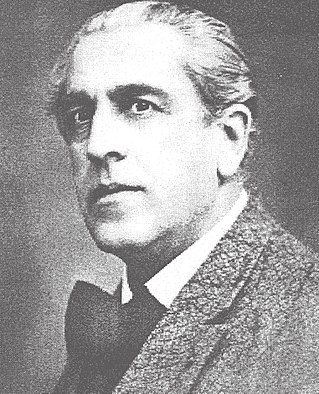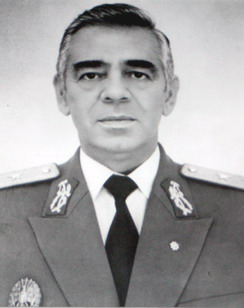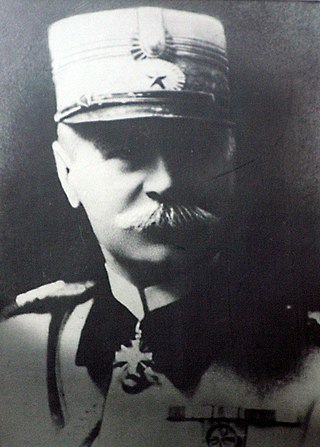The Romanian National Unity Party was a nationalist political party in Romania between 1990 and 2006.

Dinu Brătianu,born Constantin I. C. Brătianu,was a Romanian engineer and politician who led the National Liberal Party (PNL) starting in 1934.

Eugeniu Botez was a Romanian writer,best known for his novel Europolis (1933). Botez wrote under the pseudonym Jean Bart.
Elie Radu was a distinguished Romanian civil engineer and academic. Over a span of some 50 years he completed over 60 major projects,constructing railways,roads,bridges,public buildings,and civic facilities. He was also a university professor,served as president of the Romanian Association of Engineers,and was elected honorary member of the Romanian Academy.

Eremia Teofil Grigorescu was a Romanian general,commander of the 1st Romanian Army during World War I,and Minister of War in the Constantin Coandăcabinet.

Ștefan Gușă or Gușe was a Romanian general who was the Chief of the General Staff of the Romanian Armed Forces between 1986 and 1989.
David Popescu was a Romanian general during World War II and Interior Minister in 1940.
Corneliu Calotescu was a Romanian major-general during World War II.
Petre Cameniță was a Romanian major-general during World War II.

Henri Cihoski was a Romanian major general during World War I,and Minister of War from 1928 to 1930.
The 1970–71 season was FC Dinamo București's 22nd season in Divizia A. Dinamo is close to their second double in Romania,but fails to win the Romanian Cup,losing again the final against Steaua. It was the fourth final in a row played by Dinamo. After a two-year break,Dinamo is back in the European cups,playing in the Inter-Cities Fairs Cup where is eliminated in the second round by Liverpool F.C..

Emil Bobu was a Romanian Communist activist and politician,who served as Interior Minister from 1973 to 1975 and as Labor Minister from 1979 to 1981. He was an influential figure in the later years of the Communist regime until his downfall during the 1989 Revolution.

Nicolae Militaru was a Romanian soldier and communist politician. Rising to the rank of general by the 1960s,his ties to the Soviet Union led dictator Nicolae Ceaușescu to question his loyalty and sideline Militaru in 1978. He re-emerged during the Romanian Revolution,when he was made Defense Minister,serving for nearly two months before street pressure forced his dismissal. Days after Ceaușescu’s execution,he was advanced to general of the army. His final public act came in 1996,when Militaru ran for President,barely registering any support.

Alexandru Cernat was a Romanian general and politician.

Mircea Diaconu is a Romanian actor,writer,and politician. First appearing on stage in 1970,and on screen two years later,Diaconu pursued a lengthy career in both formats,working with a series of prominent directors. He acted in some sixty films through the 2000s,and continued to act in theatre during the ensuing decade. He took part in the Romanian Revolution of 1989. In 2008,he entered electoral politics,becoming a senator,and subsequently serving a term as a Member of the European Parliament. In 2019,he ran for president,placing fourth.

Gheorghe D. Mărdărescu was a Romanian army major general during World War I,a commander during the Hungarian–Romanian War of 1919,and Minister of War from 1922 to 1926.
Nicolae Alevra was a Romanian brigadier general and politician who held was Minister of Communications in the first government of Iuliu Maniu.

Alexandru Ioanițiu was a Romanian major general. He led Romanian troops against the Soviet Union during World War II,and was killed when he accidentally stepped into the moving propeller of his aircraft upon landing at an airport near Odessa while it was under siege.

Nicolae Macici was a Romanian lieutenant general during World War II,when he commanded the Romanian First Army,first on the side of the Axis (1941–1944) and then on the side of the Allies (1944–1945). Convicted in 1945 by the Bucharest People's Tribunal as a war criminal for his role in the Odessa massacre,he died at Aiud Prison five years later.

Ioan Rășcanu was a Romanian general during World War I. He held the post of Minister of War from September 27,1919 to December 16,1921. After entering politics,he was elected deputy in Parliament,and served as Mayor of Vaslui (1938–1942) and Bucharest (1942–1944). Arrested in 1947 by the early communist regime,he died several years later at Sighet Prison.













